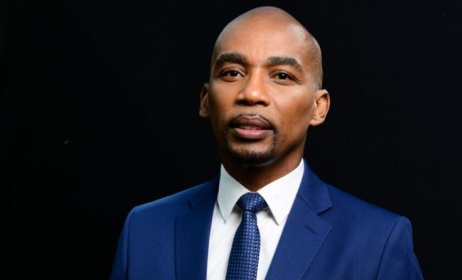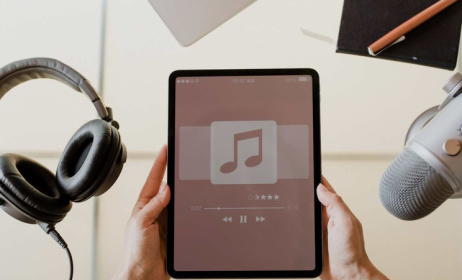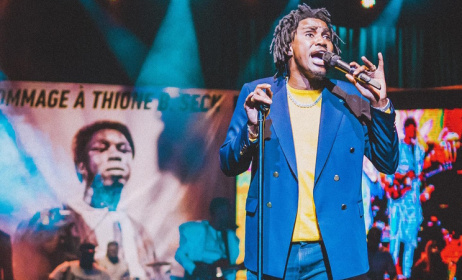"African artists should look beyond collecting royalties"
By Cedric Muhammad
In his regular column for Africanhiphop.com, 'The Hip-Hoppreneur', Cedric Muhammad provides an insider view into the realities of the music industry on the African continent and how they relate to developments on an international level. This week we look at intellectual property right laws, royalties and who they serve most – struggling artists or multinationals?
 MCSK hands over royalties to Safari Sounds band. Photo: Africanhiphop.com
MCSK hands over royalties to Safari Sounds band. Photo: Africanhiphop.com There is simply no way the multi-billion dollar Tatu City project can be successful without music. Photo: Africanhiphop.com
There is simply no way the multi-billion dollar Tatu City project can be successful without music. Photo: Africanhiphop.com
I often shake my head when I see talented African artists in 2014 seeking to essentially follow the music industry playbook that worked 20 years ago in America. I understand why this is so – America is still seen as the cultural capital of the world, despite the fact that every corner of earth (including the U.S.) privately acknowledges that their best or only hope for economic growth, new markets, and cultural rejuvenation lies on the African continent.
So while, from an activist standpoint, I applaud the ongoing efforts of African artists to establish performance rights societies similar to SESAC, ASCAP or BMI and to confront the issue of royalty collection, and compensation for public performance, my perspective as an economist advising frontier investors with ownership stakes in African companies as well as consulting entrepreneurs in the entertainment sectors in Kenya, Nigeria and South Africa has shown me where artists are leaving cash on the table as they desperately try to monetize the least rewarding area of the music industry – recorded music.
A songwriter or rapper focusing primarily on royalties in Africa is almost like a factory worker in America focusing primarily on wages and ignoring company ownership. The long-term money comes from income streams produced by capital, not wages eroded by inflation, a fact that many in the worker’s rights and minimum wage movement have been slow to accept. In the case of the African music scene, artists fighting the battle of royalty collection have to see a bigger picture – their art and their unique position often as bi-lingual celebrities is a door through which the rest of the world is tapping into desperately needed economic growth and development. The music business is bigger than just music.
I’ll give an example from my perspective as an adviser to investors.
A few years ago I had a conversation with Arnold Meyer – the former head of real estate development for the Russian-owned investment bank Renaissance Capital. Renaissance is responsible for financing the massive Tatu City project in Nairobi, Kenya and a handful of others, which aim to producer super-cities throughout the continent. I’d been analyzing the plans and prospects for my clients and came to the conclusion that there was no way the project would be successful unless a mass of Kenyan professionals currently living abroad returned home to take up office space, buy homes and rent apartments. Yet, Renaissance had no clear marketing plan to accomplish this. When I inquired with Mr. Meyer about this, after watching him make an otherwise incredibly impressive presentation, he told me it was interesting that I brought that up because they had just licensed Irene Cara’s hit record 'What A Feeling' to start to accomplish this.
The talent manager in me wondered how a 30-year old song would work in appealing to 20, 30, and 40-year old professionals and entrepreneurs but the brand manager in me understood what a song with the feel, theme and association with success like ‘What A Feeling Has’ could do as part of a larger campaign.
My point in recalling this anecdote is to show a glimpse of the world of high finance that most are unaware of (I continue to be surprised by how many of my friends from Nairobi know so little about the details Tatu City project) and how it can intersect with the world of entertainment. There is simply no way the multi-billion dollar Tatu City project can be successful without the use of music but very few African artists realize and none are in position to capitalize upon this. The growing focus on royalty collection from hard to pin down labels and broadcasters as opposed to this bigger picture and how it can result in entertainment as a form of economic development is misplaced emphasis.
Another aspect of this story that many sincere activists don’t realize is that their efforts to build intellectual property rights laws in their countries (which will allow royalties to be collected more easily) will serve multi-national corporations more than it helps struggling artists. That is why multi-nationals are backing the efforts of African artists in this area.
The artists see the foreign companies as their allies against local businesses and governments that they feel are exploiting them but in reality they are serving a larger agenda. In 2011, Google and the United Nations’ World Intellectual Property Organization (WIPO) announced they were partnering to build a common digital platform to help streamline the identification of protected musical works in 11 African countries to set the stage for the emergence of an entire new segment of the global music publishing industry – in its three major forms: performance (concerts, radio, broadcast), mechanical (sale of CDs, downloads) and synchronization (use in TV shows and movies). With American sales of recorded music declining and even downloads reaching plateaued growth, Africa and monetizing music catalogues matter more and more to corporations.
Once African artists realize that they hold the keys to global economic growth they’ll know what to demand at the negotiating table.
And that will be a lot more than just royalties.
* Originally published on 8 July 2014 on Africanhiphop.com.



























Commentaires
s'identifier or register to post comments